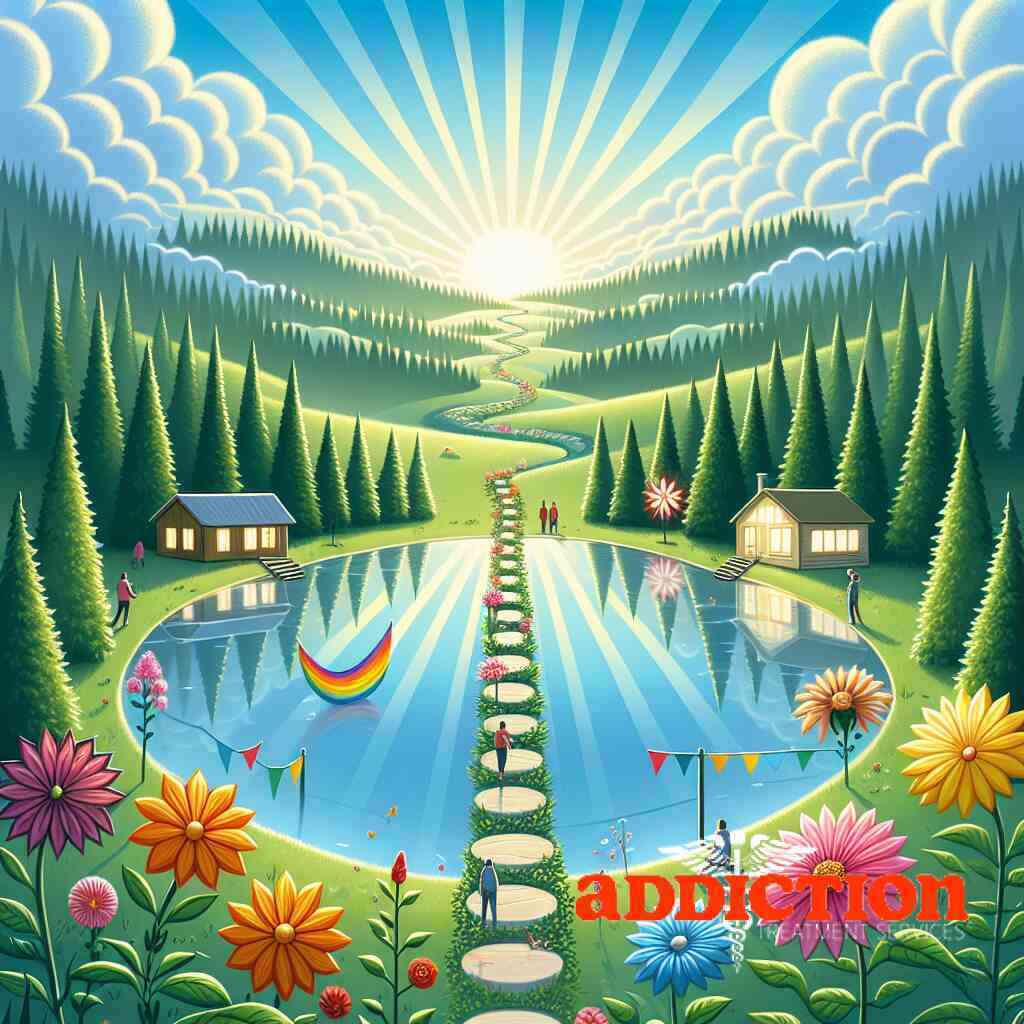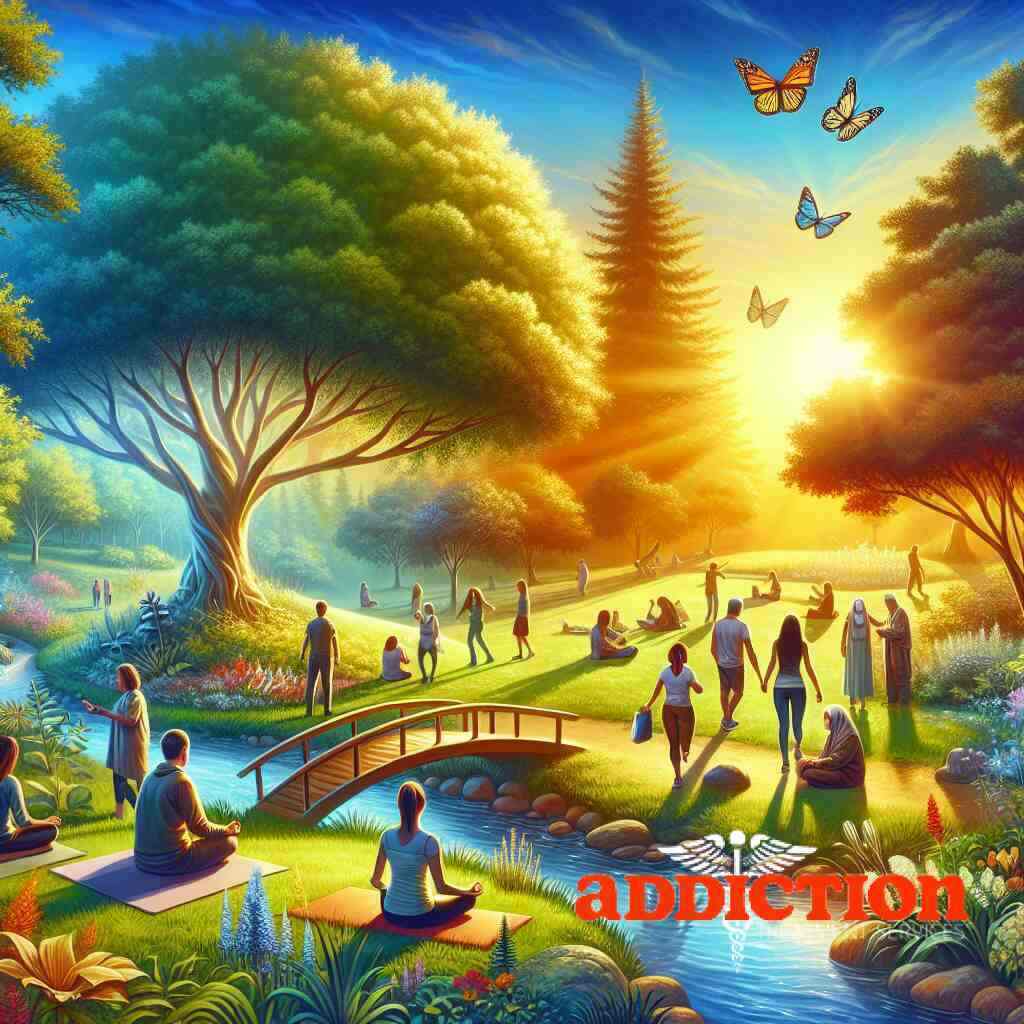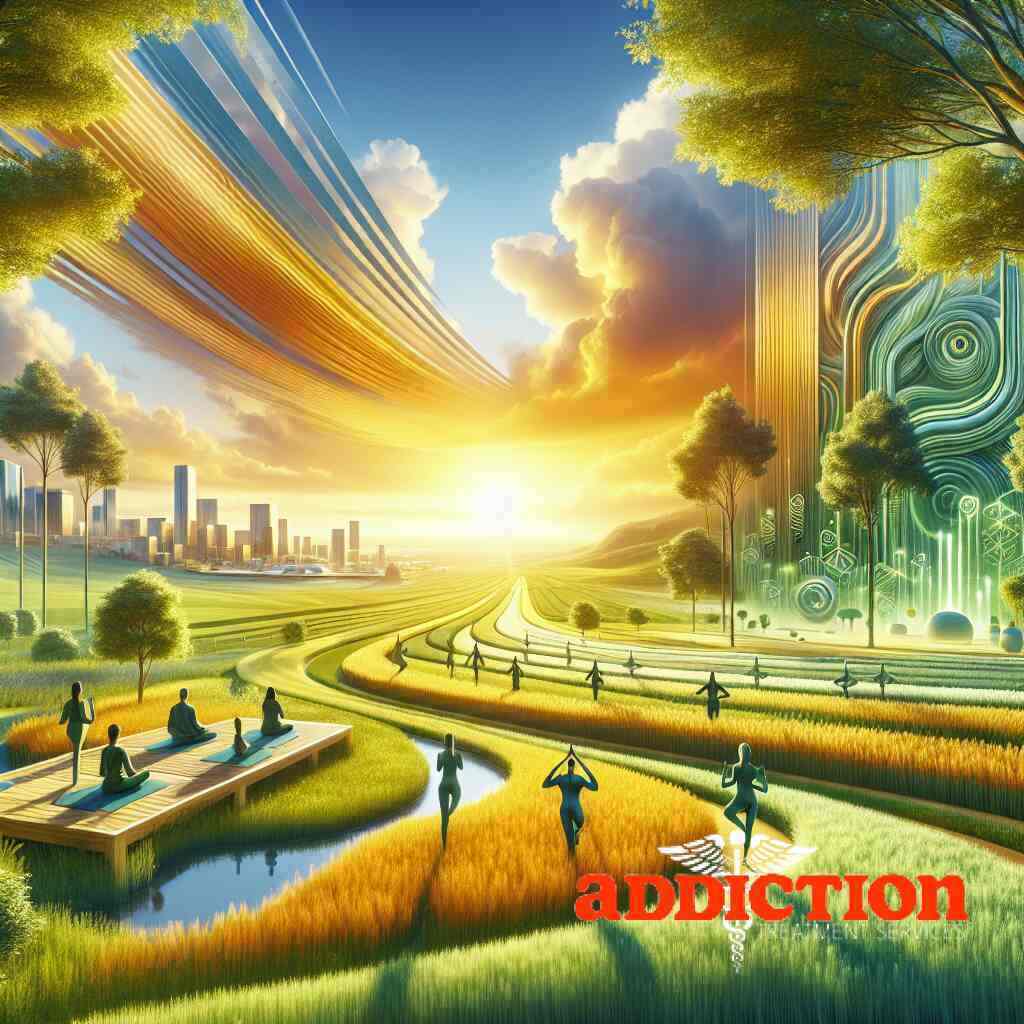 Posted On: 07/26/2024
Posted On: 07/26/2024Understanding Porn Addiction
Defining Porn Addiction
Porn addiction can be a challenging topic to navigate due to its complexity and the personal shame often associated with it. At its core, porn addiction involves compulsive engagement with sexually explicit materials despite adverse consequences. It’s a behavioral addiction that can impact an individual’s mental, physical, and social well-being, aligning with patterns seen in substance use disorders. Understanding porn addiction necessitates acknowledging its potential to hijack the brain’s reward system, leading to a cycle of craving and compulsive consumption that’s hard to break without proper intervention.
Signs of Porn Addiction
Recognizing the signs of porn addiction is the first step toward recovery. Key indicators include spending excessive amounts of time viewing pornography, failed attempts to stop or reduce consumption, neglect of essential duties or social activities, and continued use despite adverse effects on relationships or job performance. Individuals might also experience withdrawal symptoms when attempting to quit, such as mood swings, irritability, or depression. Acknowledgment of these signs is crucial for individuals and their loved ones to seek appropriate addiction treatment services.
Effects of Porn Addiction on Relationships and Personal Health
Porn addiction can severely impact personal relationships and overall health. Relationships may suffer due to feelings of betrayal, a lack of intimacy, and a preference for pornography over real-life sexual encounters. This addiction can lead to social isolation, anxiety, depression, and skewed perceptions of sexual norms and expectations. Physically, excessive pornography consumption might correlate with sexual dysfunction and a decreased interest in real-life sexual experiences. Addressing these effects through comprehensive treatment is vital for recovery.
Substance Use Disorders and Porn Addiction
The intersection between substance use disorders and porn addiction underscores the complexity of addiction as a whole. Individuals struggling with porn addiction may also face challenges with substance abuse, as both can serve as maladaptive coping mechanisms for underlying issues such as stress, anxiety, or depression. Co-occurring disorders necessitate a multidimensional treatment approach that addresses both substance abuse and behavioral addiction. Integrating behavioral therapy for porn addiction with strategies for managing substance misuse can offer a more holistic recovery pathway, emphasizing the importance of treating all aspects of an individual’s health.
Recovery and Treatment Insights
Overview of Porn Addiction Treatment Options
When addressing porn addiction, the path to recovery encompasses various treatment modalities tailored to the individual’s needs. These options range from mental health services for overcoming sex addiction to more structured environments like residential or outpatient programs. Effective treatment begins with a comprehensive assessment to determine the severity and underlying causes of the addiction. This approach ensures a personalized recovery plan that may include cognitive-behavioral therapy, support groups, medication-assisted treatment, or a combination thereof. Addiction Treatment Services provides access to a wide array of specialized services across the United States, enabling individuals to find porn addiction recovery services near them that can effectively address their unique situation.
Behavioral Therapy for Porn Addiction
Behavioral therapy stands as a cornerstone in the treatment of porn addiction, helping individuals understand the triggers and thought patterns that lead to compulsive behavior. Techniques such as Cognitive Behavioral Therapy (CBT) are frequently employed, offering strategies to manage urges and reduce dependency on pornography. Through targeted sessions, therapists guide patients in developing healthier coping mechanisms and rebuilding relationships impacted by addiction. This therapy can be conducted in individual, group, or family settings, depending on the needs of the person seeking help. Customized therapeutic activities are designed to foster self-awareness and promote sustainable behavior change.
Mental Health Services for Porn Addiction
Addressing the mental health implications of porn addiction is vital for a holistic recovery. Many individuals struggling with this addiction may also experience co-occurring mental health disorders such as depression, anxiety, or PTSD. Addiction Treatment Services connects those in need with professional assistance for mental health in porn addiction, ensuring comprehensive care that tackles both the addiction and its psychological counterparts. Integrating mental health and addiction treatment facilitates a more thorough healing process, addressing root causes and supporting the development of emotional resilience.
Intensive Outpatient Program Porn Addiction
For many, the battle against porn addiction requires more than standard therapy sessions. An Intensive Outpatient Program (IOP) for porn addiction offers a structured yet flexible treatment option that allows individuals to engage in extensive therapy without the need for residential care. IOPs typically consist of multiple therapy sessions per week, including individual counseling, group therapy, and educational workshops on addiction and mental health. This program is particularly beneficial for those with moderate to severe addiction levels who need comprehensive support but can manage recovery in their home environment.
Residential Treatment for Porn The Addiction
In cases where porn addiction is deeply entrenched or accompanied by severe mental health issues, residential treatment may offer the best chance for recovery. These programs provide a safe and structured environment where individuals can focus entirely on their healing, free from the distractions and triggers of daily life. Residential treatment centers specialize in offering personalized care that encompasses medical, psychological, and holistic therapies. Residents benefit from a supportive community, regular therapy sessions, and activities designed to promote well-being and sobriety.
Outpatient Treatment for Porn Addiction
Outpatient treatment options provide flexibility and support for those recovering from porn addiction. This model allows individuals to receive therapy and treatment while continuing with their daily responsibilities, such as work or school. Outpatient care ranges from regular therapy sessions to more structured programs, like those found in Intensive Outpatient Programs. The focus is on providing the tools and support needed to manage addiction in the context of everyday life, including relapse prevention strategies and support network development. Outpatient treatment is often recommended for those with a robust support system and a moderate level of addiction.
Each treatment pathway offers unique advantages, and choosing the right one depends on the individual’s circumstances, addiction severity, and recovery goals. Engaging with a comprehensive service like Addiction Treatment Services can help individuals and their families navigate these options and secure the support necessary for a successful recovery journey.
The Recovery Journey
Porn Addiction Recovery Timeline
Recovering from porn addiction is a deeply personal process, one that varies significantly from one individual to another. The duration needed for recovery can range from weeks to years, mainly depending on the severity of the addiction, underlying mental health issues, and the strength of one’s support network. Initially, the focus is often on managing withdrawal symptoms and developing strategies to avoid relapse. As recovery progresses, therapy and support networks play crucial roles in addressing the deeper psychological aspects of the addiction. Throughout this journey, the importance of patience and self-compassion cannot be overstated; healing is not linear, and setbacks are part of the recovery process.
Early Intervention for Porn Addiction
Early intervention in porn addiction can significantly shorten the recovery timeline and mitigate the adverse effects on health and relationships. Recognizing the signs of addiction-such as escalating use despite negative consequences, inability to cut back, and significant time lost to consumption is crucial. Addressing the problem as soon as it’s recognized helps in harnessing the motivation needed for change and reduces the period and intensity of withdrawal symptoms. Engaging with educational resources, therapy, and support groups at this early stage lays a strong foundation for recovery.
Strategies for Porn Addiction Recovery
Successful recovery from porn addiction often requires a multifaceted approach, integrating both clinical interventions and lifestyle modifications. Key strategies include setting clear, achievable goals, engaging in behavioral therapy to address underlying triggers, and adopting new hobbies or activities to redirect focus and energy. Additionally, the development of a healthy routine that includes physical exercise, sufficient sleep, and stress management techniques can play a pivotal role in maintaining progress and preventing relapse.
Relapse Prevention for Porn Addiction
Given the accessible nature of online pornography, relapse prevention is an integral component of the recovery journey. Strategies for preventing relapse often involve identifying triggers, such as certain websites, times of day, or emotional states, and developing a plan to cope with these triggers. Building a solid support network, including both professionals and peers, provides a sense of accountability and a resource for encouragement throughout the challenges of recovery. Furthermore, the ongoing practice of mindfulness and stress-reduction techniques can enhance resilience against triggers.
Detoxification from Porn Addiction
Detoxification, or detox, refers to the process of abstaining from addictive substances or behaviors to clear their effects on your body and mind. In the context of porn addiction, detoxification means committing to a period of complete abstinence from pornography and related behaviors. This can be challenging due to withdrawal symptoms such as anxiety, irritability, and cravings, but it’s a critical step toward regaining control. Engaging in a structured detoxification program, either online or in-person, can provide the guidance and support necessary to navigate this difficult phase.
Support Groups for Porn Addiction
Participation in support groups plays a pivotal role in the recovery from porn addiction. These groups offer a judgment-free environment where individuals can share experiences, challenges, and successes. Learning from others who are on a similar path can provide valuable insights and strategies for overcoming obstacles. Moreover, the sense of community and understanding within these groups fosters a supportive atmosphere that can significantly enhance the recovery experience, making sustainable recovery more achievable.
Lifecycle of Healing and Sobriety
Healing from Porn Addiction
Healing from porn addiction requires a comprehensive, multifaceted approach to address not just the behavioral aspects of the addiction but also the underlying psychological factors. Engagement in activities and therapies that improve mental and physical well-being is pivotal. Cognitive Behavioral Therapy (CBT), mindfulness exercises, and physical activities can help restore balance and rewiring of the brain’s responses to stimuli. Therapy sessions encourage individuals to explore the root causes of their addiction, fostering a deep sense of self-awareness and empowerment. Healing is a journey of rediscovering personal values, interests, and strengths beyond the confines of addiction, thereby laying a solid foundation for a new, healthier way of living.
Sobriety from Porn Addiction
Achieving sobriety from porn addiction is an essential milestone in the recovery process, marking the transition from compulsive behaviors to a life of self-control and self-awareness. Sobriety involves abstaining from viewing pornography and requires constant vigilance to prevent relapse. Adopting healthy coping mechanisms, such as engaging in hobbies, seeking support from friends and family, or participating in support groups for porn addiction, helps maintain focus and resilience against triggers. Sobriety is not the end goal but a continuously evolving process of personal growth and development.
Cognitive Behavioral Therapy Porn Addiction
Cognitive Behavioral Therapy (CBT) is a highly effective treatment modality for porn addiction. It helps individuals recognize and challenge the distorted thoughts and beliefs that contribute to compulsive behaviors. Through CBT, clients learn to identify triggers and develop healthy coping strategies to deal with stressors and emotional distress without turning to pornography. Sessions may incorporate mindfulness techniques, problem-solving skills, and relapse prevention planning, facilitating a holistic approach to recovery. Engaging in CBT equips individuals with valuable tools for managing thoughts and behaviors long-term, promoting lasting sobriety and well-being.
Recovery Support Services for Porn Addiction
Recovery support services provide essential assistance and resources for individuals navigating the challenges of porn addiction recovery. These services range from one-on-one counseling to group therapy, offering platforms for sharing experiences and learning from others. The integration of recovery blog posts and educational materials helps individuals and their loved ones stay informed about the aspects of addiction and recovery. Family therapy sessions can also play a crucial role in healing relationship strains caused by addiction, creating a supportive environment conducive to recovery. By accessing these diverse support services, individuals are better equipped to tackle the complexities of addiction and work towards sustained sobriety.
Addiction Recovery Services Online
With the advent of technology, online support for overcoming pornography addiction has become an invaluable resource, making help accessible to those who may not be able to attend in-person sessions. Online therapy sessions, webinars, and forums offer flexibility and anonymity, often making it easier for individuals to seek help. Digital platforms provide a wealth of resources, from therapeutic tools to peer support networks, allowing for a personalized and comprehensive approach to recovery. This accessibility ensures that individuals can receive ongoing support, advice, and encouragement throughout their recovery journey, regardless of their physical location.
Effects of Long-Term Recovery on Lifestyle
Long-term recovery from porn addiction can profoundly impact an individual’s lifestyle, leading to improved relationships, greater self-confidence, and a more fulfilling life. As individuals gain control over their behaviors, they often discover new hobbies and passions that contribute to a sense of purpose and satisfaction. Healthy coping mechanisms and lifestyle choices become integrated into everyday life, promoting resilience against stress and triggers. Achieving balance and well-being not only enhances personal growth but also enriches social interactions and connections, laying the groundwork for a life beyond addiction. This transformation underscores the importance of ongoing support and counseling to maintain sobriety and to navigate the challenges of life post-addiction construct accounting for the continuous nature of recovery.
Living Beyond Addiction

Building Healthy Relationships After Porn Addiction
Achieving sobriety from porn addiction opens the door to rebuilding and nurturing healthy relationships, both with oneself and others. The journey to recovery often reveals the profound impact addictive behaviors have had on interpersonal connections, pushing individuals to reassess and mend their approach to relationships. Establishing trust and open communication becomes paramount in this phase. Engaging in couple or family therapy can facilitate this healing process, offering a safe space to address underlying issues and foster more profound understanding. Recovery isn’t just about abstaining from problematic behaviors; it’s about learning to form connections that are supportive, respectful, and enriching.
Life After Porn Addiction: Success Stories
The path to recovery from porn addiction is dotted with inspiring success stories that serve as powerful testaments to the resilience of the human spirit. Individuals who have navigated the turbulent waters of addiction often emerge with newfound strength, insight, and a commitment to serving as a beacon of hope for others. These narratives highlight the transformative power of dedicated treatment and the importance of perseverance. From regaining control over one’s life to rebuilding relationships and pursuing passions, the successes of those who have overcome porn addiction underscore the possibility of a fulfilling life beyond the shadow of addiction.
Continuing Care and Maintaining Sobriety
Sustaining recovery from porn addiction demands ongoing effort and vigilance. Continuing care, in the form of regular therapy sessions, support group meetings, or participation in a recovery support service, plays a crucial role in maintaining sobriety and preventing relapse. This phase of recovery focuses on reinforcing the coping strategies and healthy habits developed during treatment. It also provides an opportunity for individuals to address new challenges that may arise, ensuring they have the support and resources needed to navigate life’s ups and downs. Embracing lifelong learning and self-improvement fosters a dynamic, proactive approach to recovery.
The Importance of Ongoing Support and Counseling
The journey of recovery from porn addiction should not be walked alone. Ongoing support and counseling are fundamental components of a successful recovery plan, offering guidance, encouragement, and perspective. Engaging with therapists, counselors, and peer support groups ensures that individuals have access to a network of understanding and compassion. Whether facing moments of doubt or celebrating milestones, the availability of continuous support underscores the value of connection and community in achieving lasting recovery. Counseling provides a space for reflection, growth, and the reinforcement of strategies to navigate the challenges of sobriety, highlighting the importance of sustained engagement with the recovery process.
Frequently Asked Questions
Question: What are the key indications that someone might be starting to recover from porn addiction?
Answer: Recognizing signs of porn addiction recovery is an essential step in the healing process. These indicators include decreased dependency on pornography, improved control over urges and cravings, enhanced emotional regulation, and healthier coping mechanisms for stress or anxiety. Recovery is also marked by the restoration of relationships affected by addiction and an increased interest in non-sexual activities or hobbies. At Addiction Treatment Services, we support individuals through this journey with access to comprehensive addiction treatment services, including therapy and support groups, to foster these positive changes.
Question: Can you elaborate on the porn addiction recovery timeline mentioned in the blog “How Long Does it Take to Recover from Porn Addiction?”
Answer: The recovery timeline from porn addiction can vary significantly from one person to another, influenced by factors such as the severity of the addiction, the presence of co-occurring mental health conditions, and the strength of the individual’s support network. Typically, initial recovery focuses on managing withdrawal symptoms and cravings, progressing to more profound therapeutic work to address underlying issues. At Addiction Treatment Services, we provide tailored programs ranging from intensive outpatient programs to residential treatment, suiting individual needs and ensuring supportive oversight throughout early intervention and beyond. Recovery is a personal journey, and we are committed to assisting each person in finding the most effective path toward healing.
Question: How influential are therapy and support groups in overcoming porn addiction?
Answer: Therapy and support groups play crucial roles in the recovery from porn addiction. Behavioral therapy, particularly Cognitive Behavioral Therapy (CBT), helps individuals understand the thought patterns and triggers associated with their addiction, developing healthier coping strategies. Additionally, support groups offer a sense of community and belonging, allowing individuals to share experiences and strategies for managing addiction. At Addiction Treatment Services, we advocate for a multidimensional approach to treatment, combining professional mental health services for porn addiction, therapy, and peer support to address both the psychological and social aspects of recovery.
Question: What options do you offer for individuals struggling with porn addiction who cannot attend in-person sessions?
Answer: Recognizing the diverse needs and circumstances of individuals battling porn addiction, Addiction Treatment Services offers online addiction treatment options. Through our website, individuals can access virtual therapy sessions, webinars, support groups, and a broad spectrum of recovery resources, providing flexibility and anonymity. This approach ensures that everyone has the opportunity to receive quality care and support, regardless of their location or ability to attend physical meetings, thereby making the journey towards healing from porn addiction more accessible.
Question: How does Addiction Treatment Services integrate family involvement in the porn addiction recovery process?
Answer: At Addiction Treatment Services, we understand the profound impact porn addiction can have on relationships and the importance of family support in the recovery process. We offer family therapy sessions as part of our treatment programs to mend broken relationships, improve communication, and build a strong support network. These sessions are designed to educate family members on porn addiction’s nature, its effects on the individual and relationships, and strategies for support. We believe in a collaborative approach to recovery, involving loved ones to create a nurturing environment conducive to healing.



